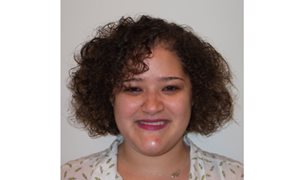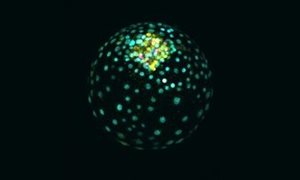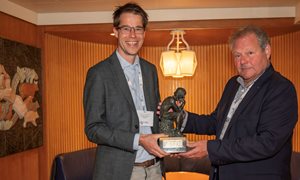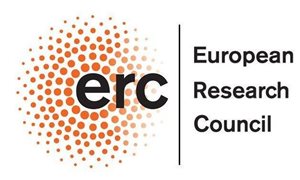 My name is Blanca Scheijen, born and raised in the Netherlands. Currently, I am Assistant Professor at the Department of Pathology, and my main research interest involves the molecular pathogenesis of lymphoid malignancies and mechanisms of therapy resistance. My research group is part of the RIMLS research theme Cancer development and immune defense.
My name is Blanca Scheijen, born and raised in the Netherlands. Currently, I am Assistant Professor at the Department of Pathology, and my main research interest involves the molecular pathogenesis of lymphoid malignancies and mechanisms of therapy resistance. My research group is part of the RIMLS research theme Cancer development and immune defense.
When you were a kid what did you want to be when you grew up? Can you tell us something about your child years.
As a child I was passionate about sports, which still have my interest, and I was fascinated by professions that were curiosity-driven. On the one hand, I wanted to become a police investigator and solve criminal cases, on the other hand I had an interest in medicine and wanted to cure patients. In the end, my sport career could not be pursued because of injuries, and I decided to become a scientist in cancer research. The latter choice was driven by the fact that my aunt died of ovarian cancer at a very young age, which had a deep impact on me at the time when I was twelve years of age.
What was your previous academic training, where did you study and why that study?
My academic training started at the University of Maastricht, where I studied Health Sciences, with a special focus on molecular life sciences. During the last period of my university studies, I performed an internship at the Netherlands Cancer Institute in Amsterdam, and was offered a PhD position under the supervision of Anton Berns. This was the perfect environment for me to receive a thorough academic training where I was surrounded by many enthusiastic scientists. It provided me with the opportunity to obtain my PhD studying the molecular genetics of lymphoma using transgenic mouse models. After a postdoc period at the Netherlands Cancer Institute and Harvard Medical School/Dana-Farber Cancer Institute, I returned to the Netherlands (Radboud University and Radboudumc), where I have been involved as senior scientist on several research projects related to hematologic malignancies.
The RIMLS motto is: ‘Today’s molecules for tomorrow’s medicine’. What does this mean for you?
Already at an early time in my career I became acquainted with the development of targeted therapy for leukemia patients with specific genomic alterations in tyrosine kinase genes, including imatinib mesylate (Gleevec) for BCR-ABL1-positive chronic myeloid leukemia and PKC412 for FLT3-mutant acute myeloid leukemia. These approaches have now been successfully applied to many different cancer types and I am convinced that for most cancers and also other types of diseases, fundamental research on their pathogenesis will eventually lead to better therapies for the individual patient with less side effects and improved treatment responses. The identification of novel predictive biomarkers will further facilitate tailored treatment for patients.
Who is your great example as scientists? And please give a motivation why.
There are of course many great scientists who have achieved enormous accomplishments in their own field of research. If I had to choose among the Dutch top scientists, I have a great admiration for Hidde Ploegh. He has made many important contributions on the molecular understanding of the immune system, and employed innovative biochemical approaches to exploit the immune and hematopoietic system for therapies. Foremost, he is a very inspiring teacher in immunology, and able to give excellent lectures on his research. He has been a Senior Investigator at Whitehead Institute for Biomedical research and Harvard Medical School. Recently, he was appointed at the LUMC, and hopefully can contribute (again) in the training of junior scientists within the Netherlands.
Which research discovery that you have made has made you most proud?
There are two discoveries for which I am proud of. During my internship and subsequent PhD project at the NKI/AVL, I discovered a novel oncogene, GFI1, that strongly collaborates with the MYC oncogene in T cell lymphomagenesis. In my previous job at the laboratory of Pediatric Oncology at the Radboudumc, the challenge was to unravel the underlying mechanism why IKZF1 gene deletions are associated with an inferior prognosis in pediatric acute lymphoblastic leukemia. Mainly through my contributions on the project we were able to directly link transcription factor IKZF1 to therapy resistance and the occurrence of relapse. These novel concepts form the basis of my current research on lymphoma pathogenesis and clonal evolution at relapse.
Given unlimited finance what experiment would you perform?
For many types of cancer there is still no cure, unfortunately. These include also rare forms of cancer, for which pharmaceutical companies show less interest to develop and test novel drugs. My effort would entail unlimited comprehensive compound screens as well as CRISPR/Cas9 screens to identify molecular targets (single and synthetic lethal) that would provide novel leads for more effective therapy for these types of cancer.
What does your working area (desk, office) look like and what does it say about you (or your research)?
My working area can be best described as organized crowdedness. I like to have most of my documents/papers that I work on as hard copies, so piles of papers tend to accumulate on my desk. Still I want to keep it in an ordered fashion, so I will be able to find immediately the documents that I need. Also for my wet-lab research I have collected many items (cell lines, plasmids, etc..), which remain useful for different research projects.
Nominate a colleague to be in the spotlight and what would you like to ask him or her?
I would like to nominate Michiel van den Brand, a pathologist at our Department, who has a very strong interest in research. If he had the chance to redo his university degree, would he choose for a non-clinical tract (e.g. Medical Biology) and have the opportunity to perform fulltime research or still decide for Medicine.
What type of person are you, quick insights:
a) Mac or PC? : Bothb) Theater or cinema? : Cinema
c) Dine out or dine in? : Dine out
d) Ferrari or Fiat? : Neither one
e) Shopaholic or chocoholic? : Chocoholic
f) Culture or Nature : Culture (directly followed by nature)
Related news items

T cell immunity is directed by tetraspanin CD53
5 July 2022 T cells are immune cells that are key for the defense against pathogens and cancer. T cells depend on the membrane protein CD45 to initiate T cell receptor signaling, but how CD45 is controlled at the molecular level is poorly understood. go to page
A single protein complex balances the very first lineage decision of cells in human: towards foetus or placenta
21 June 2022 The international group of researchers spearheaded by Dick Zijlmans and Hendrik Marks together with colleagues from KU Leuven, examined which proteins are associated with the chromatin and how this affects gene transcription. go to page
Dutch Society of Clinical Chemistry Science & Innovation Award for the team of Hans Jacobs
14 June 2022 The team of Hans Jacobs pioneers on the development of personalized diagnostics to measure minimal residual disease in patients with multiple myeloma. go to page
European grants for groundbreaking Radboudumc research Professors Roshan Cools and Peter Friedl receive ERC Advanced Grant
26 April 2022The European Research Council (ERC) is awarding grants to Roshan Cools and Peter Friedl, both professors at Radboudumc. While Cools will investigate how brains control behaviour in (stressful) situations, Friedl will work on developing a new cancer therapy.
go to page
Saponin-based adjuvant-induced dendritic cell cross-presentation is dependent on PERK activation published in Cellular and Molecular Life Sciences
20 April 2022 Lisa Huis in ‘t Veld, Nataschja Ho and colleagues from the team of Gosse Adema published in Cellular and Molecular Life Sciences that Saponin-based adjuvant-induced dendritic cell cross-presentation is dependent on PERK activation. go to page
